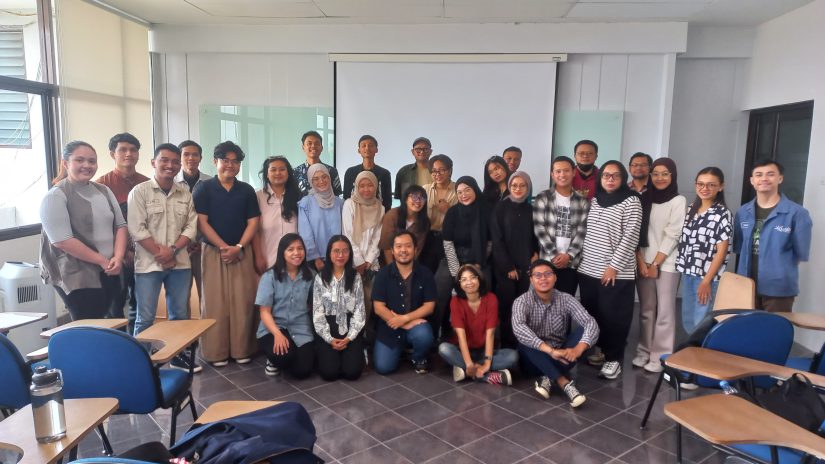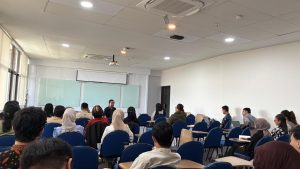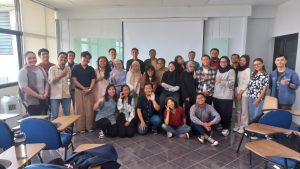
Performing Arts and Visual Arts Studies (PSPSR) Program, the Graduate School of Universitas Gadjah Mada, hosted a sharing session titled “Research Methods (in the Study of) the Arts,” featuring Michael HB Raditya, M.A., Ph.D (cand.) as the speaker. The event took place on Tuesday, May 6, 2025, at Room 407, 4th Floor, Graduate School UGM, starting at 9:00 AM.
Currently pursuing his doctoral studies at the University of Melbourne, Michael HB Raditya discussed methodological shifts in arts research, drawing from his ongoing study on dangdut, an Indonesian popular music genre. He highlighted the increasing role of digital technology and the internet in shaping contemporary research practices, especially through the use of big data and internet-based data collection.
One of the key approaches he presented involves conducting text analysis on online data obtained via web scraping methods. This allows researchers to access and analyze large volumes of data, blending both qualitative and quantitative strategies. Michael emphasized the importance of considering to what extent such data can “explain” a phenomenon, and whether relying on a single method is sufficient or should be complemented by other approaches.
He also addressed the limitations of multi-sited ethnography, particularly when inconsistencies emerge across sites dealing with the same type of data. To respond to this issue, he proposed employing a neo-Kulan ethnography approach, which aims to overcome such methodological gaps. In his research on dangdut, Michael combines multiple methods in an elaborative way, demonstrating the value of methodological flexibility in the study of the arts.
The session offered fresh perspectives for students and researchers on how research methods are evolving alongside technological developments. The engaging discussion underscored the need for scholars to be open to exploring emerging approaches in order to enrich the field of arts research in Indonesia. This event also reflects PSPSR’s commitment to supporting the Sustainable Development Goals (SDGs), particularly Goal 4 (Quality Education) and Goal 17 (Partnerships for the Goals). (AU-CG)






